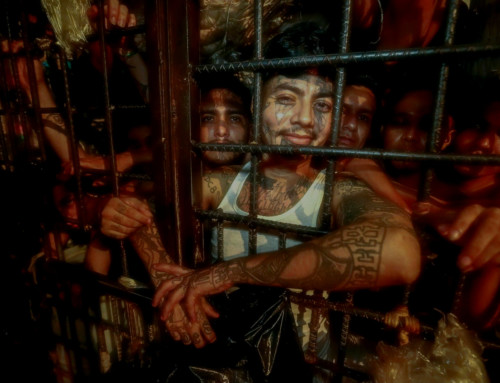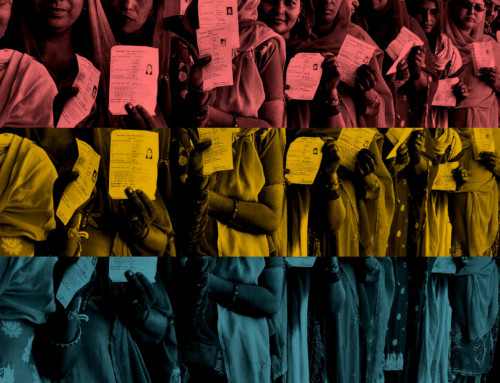More than 1200 asylum seekers remain incarcerated on Nauru and Manus Island in PNG, under the Australian Government’s draconian policy of ‘stopping the boats’ and ‘regional processing’. And it’s not just the current government.
As Waleed Aly pointed out in his Comment in the Age on 28 April 2016, Australia’s policy on asylum seekers is a bi-partisan one, with both sides of politics being responsible for its ‘monstrous outcomes’.
Nowhere are these monstrous outcomes more evident than in the recently released ‘Nauru Files’, published by The Guardian last week. The Nauru Files are a suite of leaked incident reports from the detention centre for asylum seekers on Nauru. The cache of reports consists of over 2000 incidents, totalling 8000 pages of trauma and abuse that have been inflicted on asylum seekers between 2013 and 2015.
More than half the incidents reported involve children, who make up only 18% of the asylum seekers in detention on Nauru. Even before the release of the Nauru Files Australian Medical Association President, Professor Brian Owler, was calling for children to be removed from detention centres. In October of 2015 he further condemned the policy of holding children in detention, saying that “Having children in detention is a form of abuse” and that it “is a systematic abuse of children that is sanctioned by the Government.” Warning must be given as to the nature of the content. Indeed Amnesty International’s Senior Director for Research, Anna Neistat, states that the leaked documents have; laid bare a system of ‘routine dysfunction and cruelty’ that is at once dizzying in its scale and utterly damning for the Australian authorities who tried so hard to maintain a veil of secrecy… … the Australian government has engaged in one of the most successful mass cover-ups I’ve witnessed in my career of documenting human rights violations. They’ve repeatedly said this kind of abuse has not been going on. They’ve been lying.[2] Children and adults alike are being profoundly affected by their indeterminate periods of incarceration. Prolonged periods in immigration detention have severe impacts on the psychological well-being, inter-personal relationships and quality of life of individuals.[3] They can cause ongoing developmental harm for children and adults.[4] The dollar cost of this offshore processing regime is staggering (at least $1.2billion per year to fund Nauru and Manus Island centres)[5]. But what is the real cost of Australia’s compassion deficit. How will these people heal? What are the longer-term socio-political impacts of the systematic abuse of such a large number of people in Australia’s care? People who have most likely already lived through and fled horrific situations of conflict and persecution are being re-victimized. Moreover, what will be the legal ramifications and ongoing compensatory costs given that it is already recognised that Australia is in breach of international conventions on human rights and refugees? There are calls for independent investigations and/or a Royal Commission into offshore detention centres. Prime Minister Turnbull has recently announced a Royal Commission into the treatment of juvenile offenders in detention centres in the Northern Territory. A Royal Commission into institutional responses to child sexual abuse is already under way in Australia and Human Rights groups argue that abuse within the Australian-run centre on Nauru fell within the commission’s jurisdiction[6] Meanwhile Peter Dutton, the Minister for Immigration, claims that ‘Nauru is not part of Australia so this is an issue for the Nauruan Government’.[7] How much lower can the Australian Government go? [1] see Children in Detention ‘A form of Abuse‘; AMA President [2] see Amnesty International’s ‘Australia: Reaction to The Guardian’s damning ‘Nauru files’ on refugee abuse‘ [3]Guy Coffey et al, ‘The Meaning and Mental Health Consequences of Long-term Immigration Detention for People Seeking Asylum’ (2010) 70 Social Science & Medicine 2070 cited in Academics for Referees Policy Paper. [4]Sarah Mares, ‘Fifteen Years of Detaining Children who Seek Asylum in Australia: Evidence and Consequences’ (2016) 24 Psychiatry 11 cited in Academics for Referees Policy Paper. [5] see Sydney Morning Herald February 2015 [6][7] see Ben Doherty and Paul Farrell’s piece in The Guardian, 12 Aug 2016The details of the incident reports in the Nauru Files can be viewed in this interactive database produced by The Guardian.
![]()






Leave A Comment